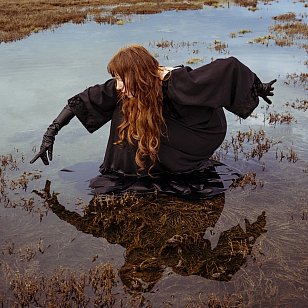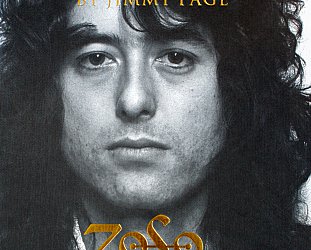Graham Reid | | 2 min read
The Only One

The role of the critic is not – as some people think, and some critics do also unfortunately – to rip apart the work of an artist.
Nor is it to offer “constructive criticism”. That role falls to, in the case of music, the manager, producer, record company or trusted advisors.
Because the role of the critic is not well understood, some years back I wrote an essay, The Role and Responsibilities of the Critic.
Without putting tickets on myself I believe it is still worth reading.
I thought of it again when this album came along because many years ago this Dunedin band were featured in the televised coverage of an awards show and they were grim.
And I said as much somewhere and thus earned the wrath of someone involved in the production of the awards who said people on the night enjoyed it – perhaps they did – and it wasn't for a television audience.
The rejoinder to that is simple: then why televise it?
However when the band's next album came along I reviewed it very favourably which rather underscored a point I made in that essay: that just because a critic doesn't like something the first time doesn't mean they won't the next time, if they are open-minded enough and doing their job.
To this band and their third album then.
The phrase “death and the maiden” refers to the figures of death (in art often a skeleton) with that of youth and life, a jarring juxtaposition reflecting memento mori (remember, you will die) and the age-old prayer “even in the midst of life, we are in death”.
It's the title of a string quartet piece by Franz Schubert, an 18th century poem by Matthias Claudius and paintings by Egon Schiele, Hans Baldung and Edvard Munch among many other European artists.
It's grim up north.
Down here it immediately brings to mind Graeme Downes' 1983 signature song for the Verlaines.
Naming your band Death and the Maiden – as Dunedin's Lucinda King, Hope Robinson and Danny Brady have done – conjures up bleak imagery.
Their self-titled 2015 debut album's cover was a stark black'n'white Esta de Jong photo of a hand holding a stem of orchids from her All That Lives Must Die series.
It's grim down south?
Although the trio – named for the Munch, incidentally – explore the porous, emotional boundary between life and death/light and darkness, their gloom-pop often radiates a beguiling discomfort.
Obvious touchstones are early Cure and Joy Division/New Order – washes of guitars, synth drums, bass to the fore, repeated and minimalist trance-like melodies – but King's ethereal vocals and lyrics elevate the often mesmerising, if familiar, atmospheres of Uneven Ground.
There's an increasingly oppressive, relentlessness to Waratah and Nola – the latter settling on the repeated “now it's gone” and “you're not around” – that overwhelm King's voice; Not Like comes with disturbing scratching by Alphabethead and an intricate weave of vocals; the menacing Ceramic is discordant and disruptive in this context.
The title Uneven Ground suggests wary walking and there's certainly unease here. But Death and the Maiden have assured footing and – although broadcasting on a readily identifiable emotional bandwidth – offer engrossing, gloomadelic penumbra-pop.
.
You can hear and buy this album at bandcamp here





post a comment